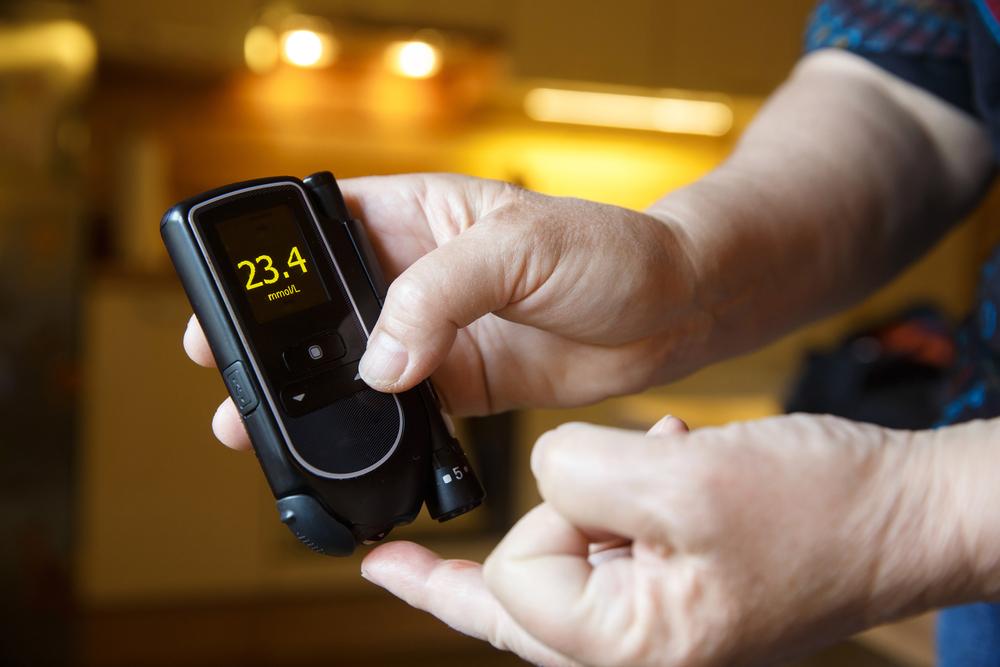Here’s What You Need to Know about Diabetes
When the pancreas does not produce enough insulin or when the pancreas produces insulin but the insulin is resisted by the body, people suffer from a condition known as diabetes. It is a condition where the body is prevented from properly using the energy from foods and causes a spike in the sugar levels.
In simple terms, when one eats food, it is broken down into glucose or sugar. During digestion, this glucose moves through the body, through the bloodstreams in order to feed the cells.

The problem occurs when one has too much blood sugar in the body compared to the amount of insulin produced by the pancreas. If one’s body isn’t making enough insulin to keep up with the amount of blood sugar or if the body is having troubles to produce insulin, the glucose remains in the blood thus causing blood sugar levels to elevate. If the same continues to happen even after monitoring one’s diet, then one might develop diabetes.
There are mainly three types of diabetes, namely, type 1, type 2, and gestational diabetes, but there is also a stage that people can suffer from before diabetes known as pre-diabetes. Almost 30.3 million people in the country suffer from diabetes and approximately 84.01 million people are estimated to have pre-diabetes and are unaware of it.
Causes of diabetes
- Pre-diabetes, also known as impaired glucose tolerance, is a condition where the blood sugar level elevates to a level that is higher than the normal range but is still low enough to be considered as diabetes. People with pre-diabetes are at the risk of developing type 2 diabetes later in life if they don’t monitor their condition carefully.
- Type 1 diabetes, an autoimmune disease, is caused when the pancreas produces very little insulin or no insulin at all. People who suffer from type 1 diabetes are usually under the age of 20.
- Type 2 diabetes is usually found in people who become overweight as they age. Although type 2 diabetes is often referred to as adult-onset diabetes, in many countries like the United States, even children and young adults are being diagnosed with type 2 diabetes as they do not exercise on a day-to-day basis.
- Gestational diabetes is a condition caused in women when they are in the second trimester of their pregnancy. Only about 4 percent of women develop gestational diabetes which disappears after the baby is born, unlike type 1 and type 2 diabetes.
Symptoms of diabetes
Getting diagnosed with diabetes can be devastating. When the pancreas do not produce enough insulin and the body does not get enough insulin, it reacts to having too much glucose. Symptoms of diabetes are as follows:
- Being very thirsty
- Urinating often
- Feeling tired or lethargic
- Unexplained weight loss
- Sores that do not heal quickly
- Dry, itchy skin
- Blurry eyesight
- Tingling sensations in the hands and feet
- Diabetic ketoacidosis
While there are other diseases that might have similar symptoms, it is best to consult a doctor or a physician right away if one notices any of these symptoms.
Treatments for diabetes
- Diabetes is a life-long condition and currently, there is no cure for the disease. However, one can use effective methods to control and keep the blood sugar levels at a safe range.
- One needs to have a healthy lifestyle with proper diet and regular exercising, in order to help the body use insulin better so that it can convert glucose into energy for cells.
- People with type 1 diabetes and some with type 2 diabetes have to take insulin injections. While people with type 2 diabetes can take oral pills that help their body produce more insulin or use the insulin it is producing in better ways.




